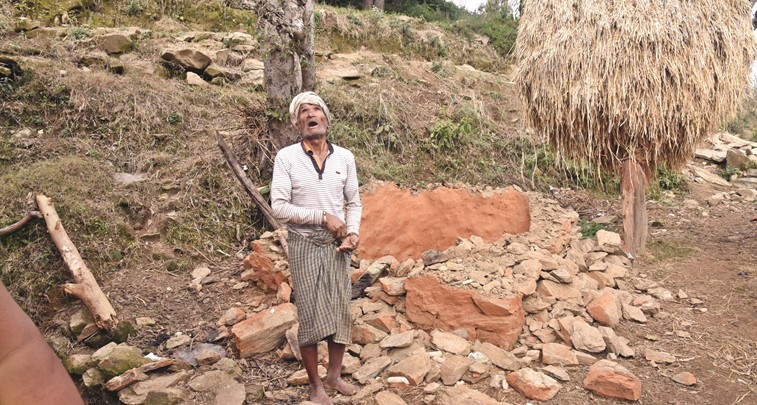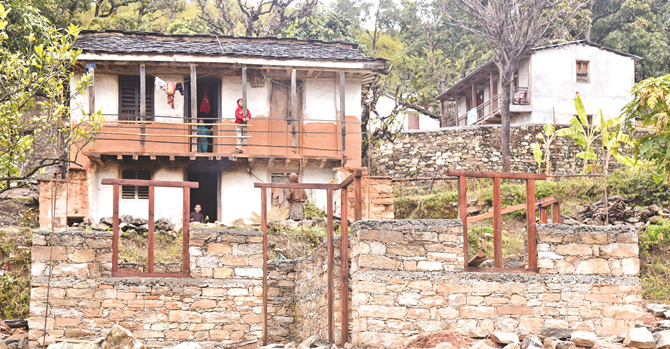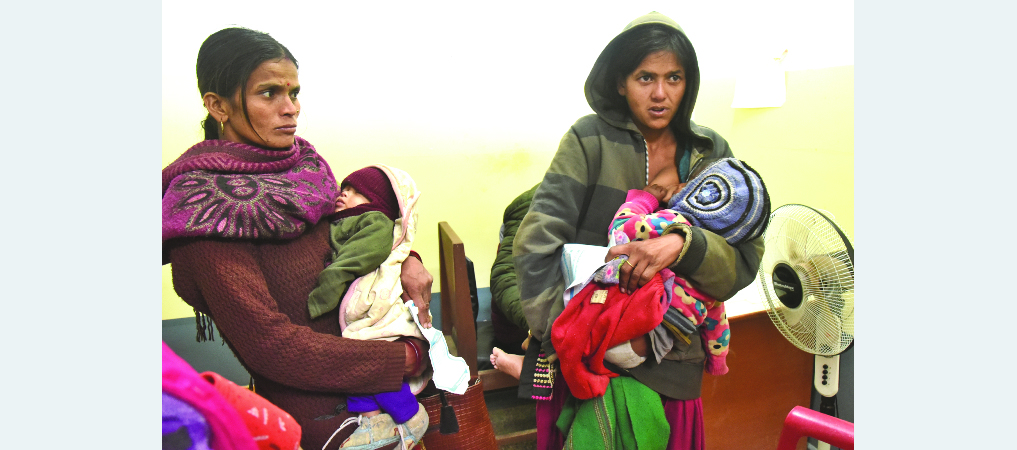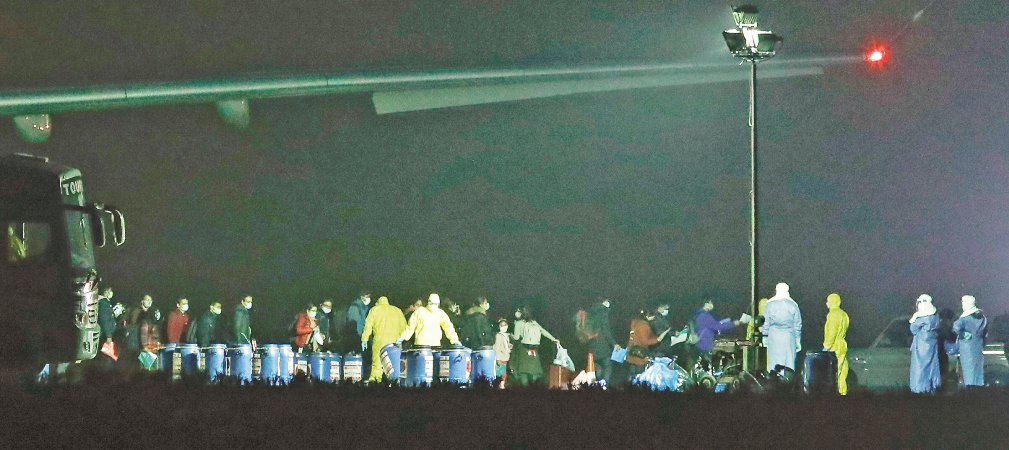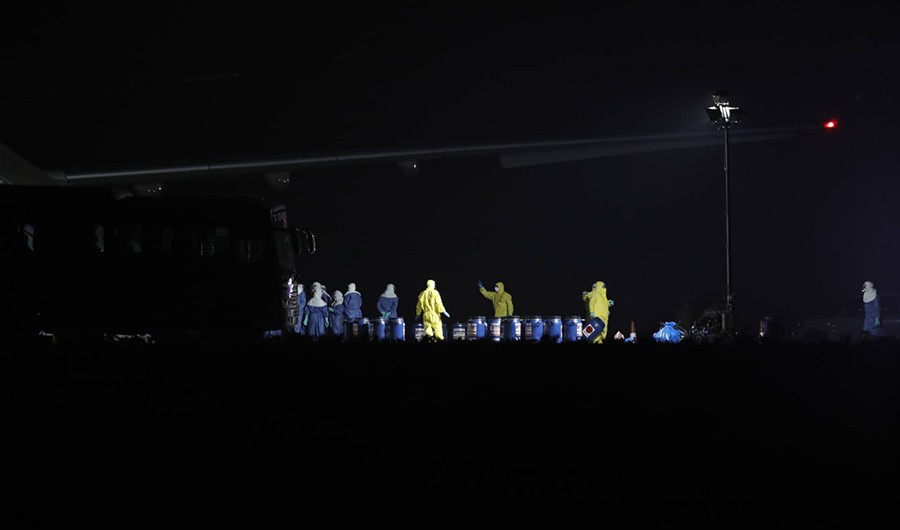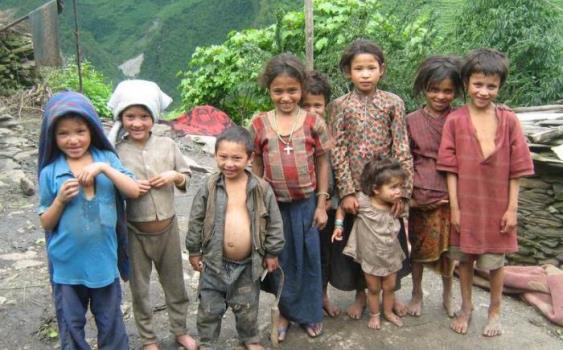Outbreak of seasonal diseases pose a threat as people flout health protocols

Kathmandu, Mar. 20: For the past two years, the government focused on health safety precautions in an effort to prevent the spread of COVID-19, effectively containing the outbreak of many seasonal diseases in Nepal.
However, as the pandemic appears to have relaxed its grip, people are increasing their mobility, and not caring about self-hygiene, which is posing a threat of rise in seasonal illnesses.
As the coronavirus cases fall, health experts have warned of a rise in the cases of seasonal diseases associated with water, air and food and vector-borne infections.
The occurrence of seasonal illness among people may not be as light as that in the last two years, said Dr. Sher Bahadur Pun, Expert of Infectious Disease at the Shukraraj Tropical and Infectious Disease Hospital, Teku.
“People are flouting health protocols as the COVID-19 cases are declining, that means they are not maintaining hygiene which would be favorable for spread of infectious diseases, like seasonal flu, diarrhea, dengue, typhoid and malaria,” said Dr. Pun.
For the past two years, mask mandates were enforced in public places where influx of people was very low, said Dr. Pun.
“People had strictly followed public health guidelines, including social distancing and hand hygiene,” added Dr. Pun. “Now the situation is totally different as people are going out without masks and they are not protected from the seasonal illness.”
During the summer, pre-monsoon and monsoon seasons, it is imperative for the government to take extra care as the vulnerability of the country to infectious diseases increases significantly, according to health experts.
Water/food-borne diseases like diarrhea have the highest morbidity and mortality rates among the communicable diseases in Nepal. According to the Nepal Burden of Disease-2017, diarrheal diseases are responsible for 5.6 per cent of total deaths in Nepal.
According to health experts, human exposure to water-borne infections occurs by contact with contaminated drinking water or food. Water- and food-borne diseases are linked to the ingestion of pathogens through contaminated water or food, while vector-borne diseases are linked to the infections transmitted by arthropods, like mosquitoes.
Ensure safe drinking water and hygiene
Each year, water-borne diseases afflict hundreds of people, primarily those living without safe and accessible water in crowded cities and poor communities.
Water-borne diseases are illnesses caused by microscopic organisms, like viruses and bacteria, that are ingested through contaminated water or by coming in contact with feces, according to health experts.
People are experiencing water scarcity due to rapid urbanization, overpopulation, and overexploitation of groundwater reserves due to which they are compelled to buy jar water. The concerned authorities must monitor the quality of the jar water as well, suggested Dr. Pun.
Dr. Sharad Onta, a public health expert suggested concerned authorities to conduct a door-to-door sanitation and self-hygiene campaign. The awareness campaign should be launched on time to make people aware of water treatment for safe use, importance of hand washing and personal, food hygiene and community sanitation.
As self-support and support for healthy community, effort of an individual is also very essential, he said, adding that people must practice and promote healthy behaviour. Key hygiene messages, including household water treatment, safe storage of drinking water, handwashing, food hygiene, and basic sanitation, are essential, said Dr. Onta.
Awareness booths can be set up in busy public places incorporating information related to hygiene and disease prevention, suggested Dr. Onta.
Govt preparedness
Epidemiology and Disease Control Division (EDCD), under the Ministry of Health and Population, is entrusted with containing the possible epidemics. “We provide relevant information to decision makers for public health priorities and resource allocation,” said Dr. Chuman Lal Das, EDCD director.
“We will supply testing kits and keep medicines in stock in view of the any kind of possible outbreaks,” informed Dr. Das. “For the last two years, seasonal diseases subsided due to the attention given to health hygiene in fear of COVID-19.”
“This year we need to be more vigilant for the possible outbreak of any kind of infectious disease.” For that, we are mobilising public health professionals, who can determine actions that are needed to prevent the outbreaks and reduce the burden of seasonal diseases, he added. The government has been working on Early Warning and Reporting System (EWARS), which is a hospital-based sentinel surveillance system.
The Health Management Information System (HMIS) set up by the EDCD provides timely reporting for early detection of vector-borne, water- and food-borne diseases with outbreak potential, said Dr. Das.
According to the EDCD, during summer, pre-monsoon and monsoon, the diseases like, malaria, kala-azar, dengue, acute gastroenteritis (AGE), cholera and severe acute respiratory infection (SARI), and other epidemic potential diseases/syndromes (like enteric fever, Leptospirosis, Hydrophobia, Chikungunya, etc.) may be witnessed.
According to Dr. Das, EDCD carries out regular monitoring of drinking water quality from various sources and distribution sites. When the possibility of water-borne diseases occurs, EDCD coordinates with different stakeholders for quality surveillance.
Recent News

Do not make expressions casting dout on election: EC
14 Apr, 2022
CM Bhatta says may New Year 2079 BS inspire positive thinking
14 Apr, 2022
Three new cases, 44 recoveries in 24 hours
14 Apr, 2022
689 climbers of 84 teams so far acquire permits for climbing various peaks this spring season
14 Apr, 2022
How the rising cost of living crisis is impacting Nepal
14 Apr, 2022
US military confirms an interstellar meteor collided with Earth
14 Apr, 2022
Valneva Covid vaccine approved for use in UK
14 Apr, 2022
Chair Prachanda highlights need of unity among Maoist, Communist forces
14 Apr, 2022
Ranbir Kapoor and Alia Bhatt: Bollywood toasts star couple on wedding
14 Apr, 2022
President Bhandari confers decorations (Photo Feature)
14 Apr, 2022



